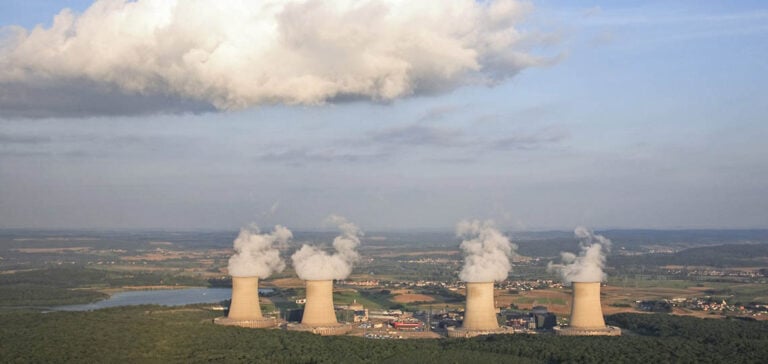Support for nuclear power plants takes a historic turn with an agreement reached by EU energy ministers. It should be noted that this support marks a major reform in the electricity market. This agreement offers the possibility of public support for existing nuclear power plants, while imposing strict restrictions in line with EU rules on state aid. This compromise puts an end to months of tense negotiations between France and Germany over support for nuclear power, a crucial issue for European industry.
Stabilization of electricity prices
Following last year’s surge in electricity prices, the reform aims to reduce bills for households and businesses by introducing long-term contracts to mitigate the volatility of gas prices. In addition, the approved text makes the use of “Contracts for Difference” (CFD) mandatory for all public support for new decarbonized electricity generation facilities, whether renewable or nuclear.
Contracts for Difference
Under this mechanism, if the wholesale market price exceeds the agreed price, the electricity producer will have to pay the additional revenue to the state, which can then redistribute it to consumers and industry. On the other hand, if the market price is lower than the set price, the State will pay compensation to the producer. This measure is designed to provide greater predictability for investors.
Balance between France and Germany
The question of support for existing nuclear power plants has been a major sticking point between France and Germany. In the end, the States adopted a balanced position: the use of CFDs for existing power plants will be an option, but not compulsory. However, those who choose this route will have to comply with European rules on state aid, with strict monitoring by the European Commission to avoid any distortion of competition.
Consumer protection
The text also proposes measures to reinforce consumer protection. In the event of a sustained rise in prices, a crisis situation could be triggered at European level, enabling States to adopt measures to protect the most vulnerable and small businesses.
Limited environmental exemptions
Another point of debate was the use of “capacity mechanisms” to remunerate unused power plant capacity to avoid electricity shortages. Some nations, including Poland, wanted exemptions from environmental requirements. Finally, a derogation from the CO2 emission limits was introduced, but with strict conditions and a deadline until the end of 2028.
This agreement on the reform of the European electricity market marks a significant step forward in the transition to more sustainable energy, while preserving industrial competitiveness. It aims to ensure a balance between support for existing nuclear power plants and EU rules on state aid, while offering greater stability in electricity prices and enhanced consumer protection.





















